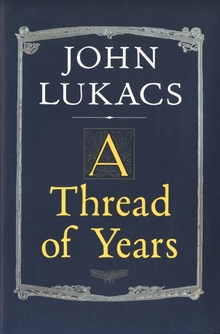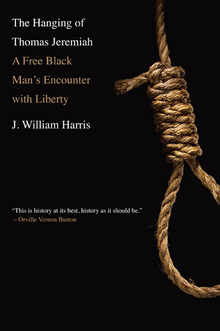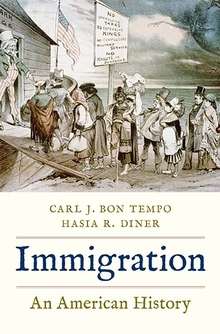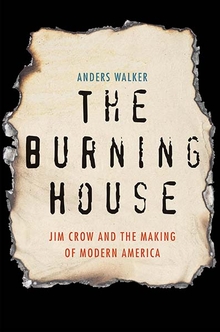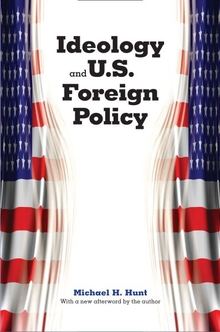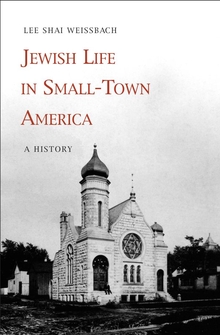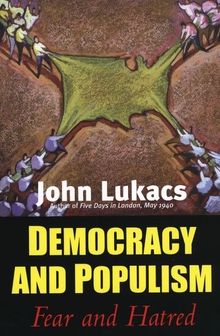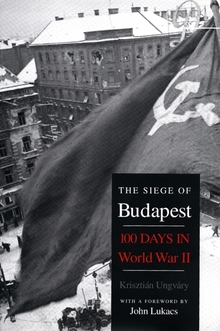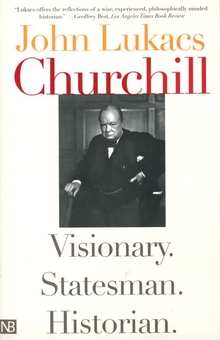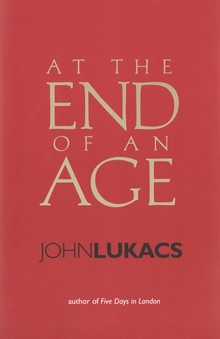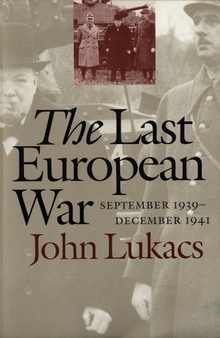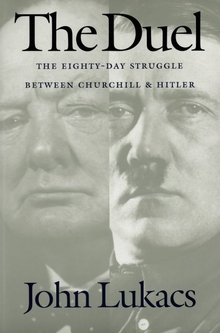A Thread of Years
WARNING
You are viewing an older version of the Yalebooks website. Please visit out new website with more updated information and a better user experience: https://www.yalebooks.com
John Lukacs
The period represents the life of a single man, K., which Lukacs weaves in and out of the text and through which can be traced the leitmotif of the book: the decline of Anglo-American civilization and of the ideal of the gentleman. The book is primarily a work in the history of manners and mores, a delightful-and poignant-succession of sketches that brings the reader into the inner and often undeclared life of individuals and places them in the larger dramas of historical process in this century.
A selection of Readers’ Subscription
"A graceful goodbye to this century."—George McKenna, First Things
"Academic historians have on the whole refused to learn anything from the ingenuity and discoveries of the other arts, and it is rare indeed for them to write in anything but orthodox academic style. . . . Lukacs has had the courage to do otherwise, and he deserves a medal for it. Each of the 68 chapters of his book, one for each year between 1901 and 1969, begins with a piece of fiction, an imagined incident as a symbol of the year’s significance. These are fun, suggestive, controversial. There hasn’t been a history book quite like this before. The reader is constantly surprised by Lukacs’ inventions. . . [There is] much that is charming in his cultivated, gifted, almost Proustian writing. . . [A] highly enjoyable and thought-provoking book."—Theodore Zeldin, Los Angeles Times Book Review
"An engagingly readable hybrid that employs the techniques of novelist and essayist to evoke and dissect the Zeitgeist of particular moments in history. . . . Lukacs has indeed created a form of historical writing that sheds much-needed light on the shadowy realms where private thought and public opinion take—and change—their shapes. . . . Written with a nimble grace and lightness that make it a surprisingly exhilarating read."—Merle Rubin, Wall Street Journal
"An unconventional work of stunning historical imagination by a distinguished historian. Tracing the flow of American history from 1901 to 1969 through an account of the life of a single fictionalized character, K, Lukacs records the inner sensibility of this period."—American Bookseller
"Anyone with an interest in our century will find this book completely addictive. [Lukacs] is always a rewarding guide and companion on the journey. This is a book for dipping into over time—and for arguing with. Lukacs is right about so much that every disagreement must be carefully weighed, and in matters of taste—not usually thought of these days as a requirement for a historian—he almost never puts a foot wrong. There is much to interest and entertain us in Lukacs’s historical tour de force, and much wisdom about human nature which transcends history as well." —James Bowman, National Review
"Reading A Thread of Years is like being shown to a series of frost-covered windows and looking through into long-ago room, as if guided by one of Dickens’ Christmas ghosts. But there’s no gauzy nostalgia here, the point of these vignettes is that they could have happened. Lukacs is the exact opposite of the historical novelist who puts unreal words into the mouths of real people. . . His most personal book. . . It’s always thoughtful and thought-provoking. It’s often sad, and just as often beautiful"—John Dorfman, Philadelphia Sunday Inquirer
"Lukacs. . .writes superbly, choosing each word with care and exactitude as only a person for whom English is a second language would do."—Raymond Seitz, Daily Telegraph
"It is a work of history written with such charm and insight that I feel the strongest possible sympathy both with the book and with the author. . . . [Lukacs] has written a beautiful and civilized work of history."—William Rees-Mogg, Spectator
"An engaging and original work."—Microsoft Network Reading Forum
"A Thread of Years, like every good book, is an escape into truth. . . . So effective is [it] at the sensate level, evoking even more than it says, that a second reading is useful fully to appreciate the thematic statement and development, both of them profound and inclusive, registering symptoms of 'the sad decline of a civilization' across a broad range of human experience."—Chilton Williamson, Jr., Chronicles
"Chatty, allusive, rambling, and digressive, the book is eminently readable; and well worth reading, especially if one hails from Pennsylvania or from Central Europe."—Eugen Weber, American Scholar
"Moving fastidiously between the bailiwicks of history and fiction, this book may well be the "new genre" that its author only half seriously claims…At the end one is left not only with the titillation of watching familiar icons totter, but also with the exhilaration of seeing a good mind at work." —Hardy Long, Reader’s Catalogue
"I have read this book with unflagging interest and pleasure. Original in form and substance, it is history as it might be lived and again as it might form the subject of conversation—solid food for thoughtful minds."—Jacques Barzun
"For delineating historical ideas not in the abstract but through the texture of lived lives, A Thread of Years is one of the half dozen works worthy of setting beside Huizinga's Waning of the Middle Ages. John Lukacs has broken the old historical mold and, in so doing, written his most engaging and his most important book."—Jeffery Paine, literary editor, Wilson Quarterly
"Undeniably refreshing—his emphasis on the history of common individuals rather than presidents, kings or the nameless masses."—Publishers Weekly
"Lucid writing and reasoning"—Dennis L. Noble, Library Journal
"[A] striking and structurally innovative study of the American century. . . . The characters possess a sanguine F. Scott Fitzgerald romanticism, and the lyrical settings make on wonder why Lukacs, despite his frequent protestations that he is a historian rather than a novelist, hasn’t tried his hand at fiction."—Robert Taylor, Boston Globe
"A tour de force combining a modernist literary technique with a wealth of historical facts and useful observations."—Paul Gottfried, Society
"Like a fine, mellow wine, John Lukacs's latest book breathes out a quality rare in the modern intellectual marketplace, a kind of quiet moral reflectiveness."—Caryl Johnston, Modern Age
"Lucaks has produced something unusual . . . which puts the reader in communion with an elite mind and propels him into a rarefied historical atmosphere of splendour and denunication. . . . Lukac’s book is better encountered than described."—Mark Greif, Times Literary Supplement
"Like all the great historians, this Hungarian-American [Lukacs], also is a great philosopher of history. He is best known for developing his idea of 'historical consciousness' and as a historian of World War II, the Cold War and democracy in America."—John Seiler, Orange County Register (CA)
"[A] remarkable literary effort—part novel, part essay, wholly unique—to reanimate the century’s most intimate textures by a year-by-year examination of its course. . . [A] radical and arresting new work."—Richard F. Snow, American Heritage
Publication Date: November 10, 1999

